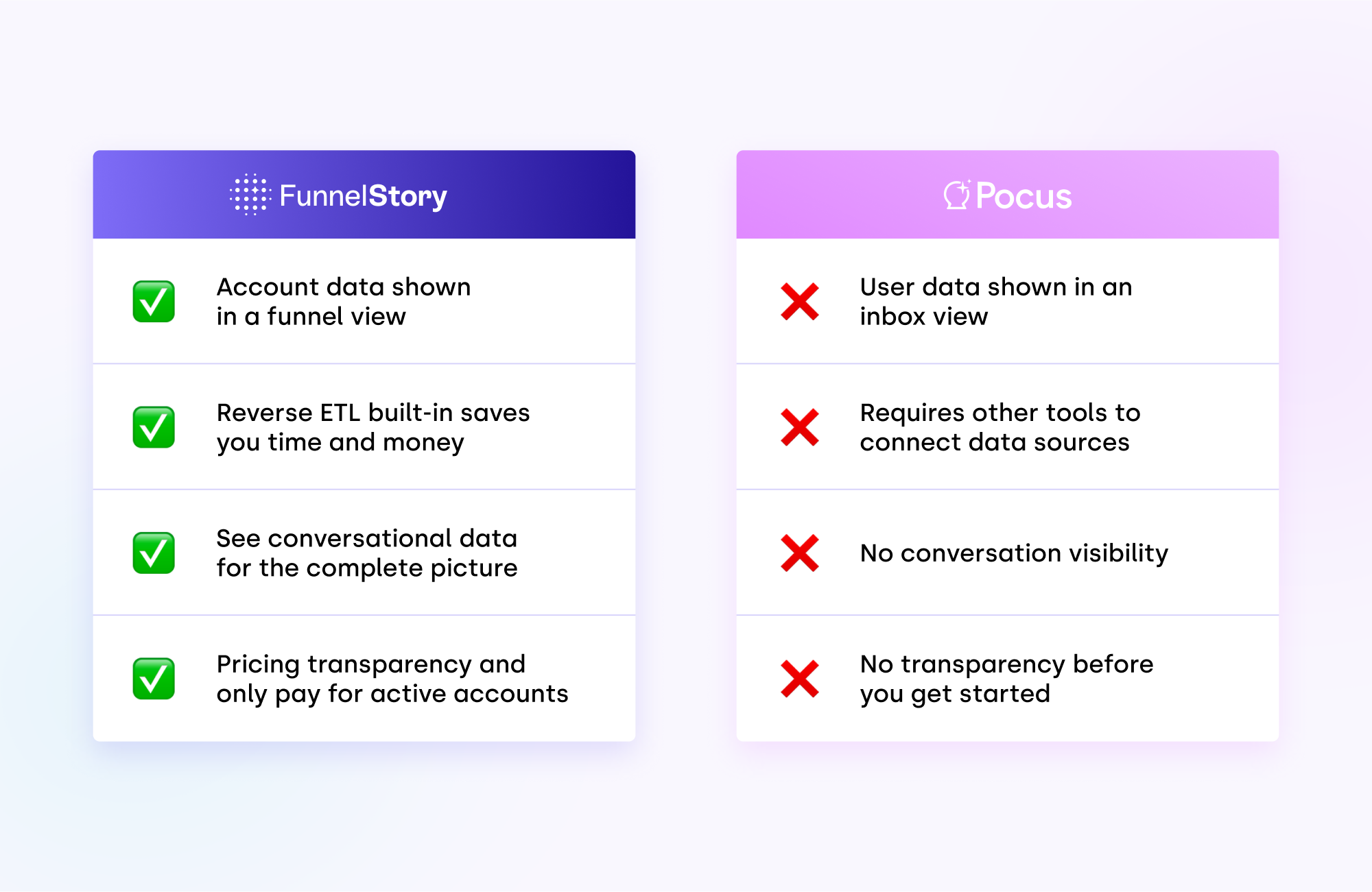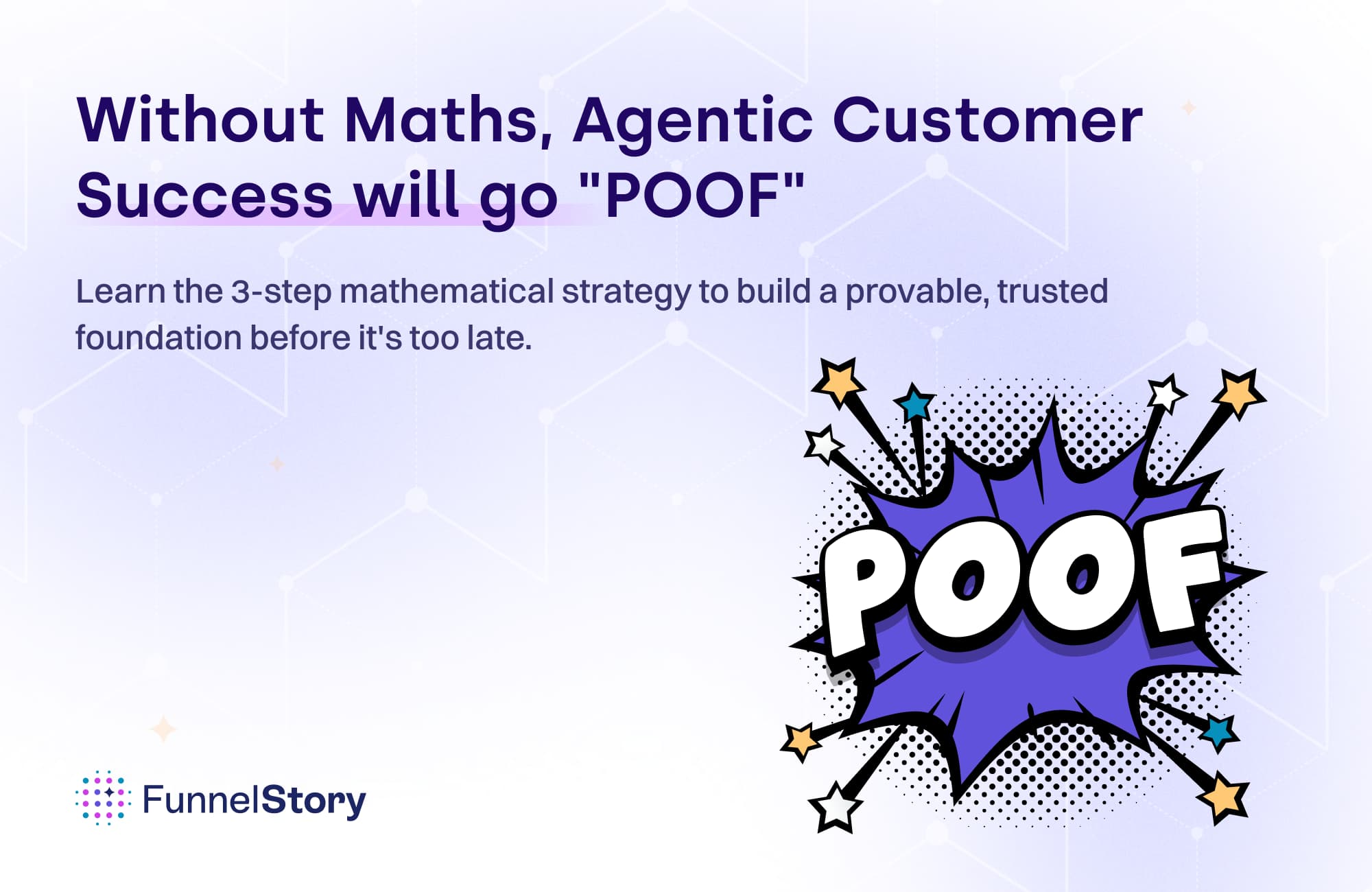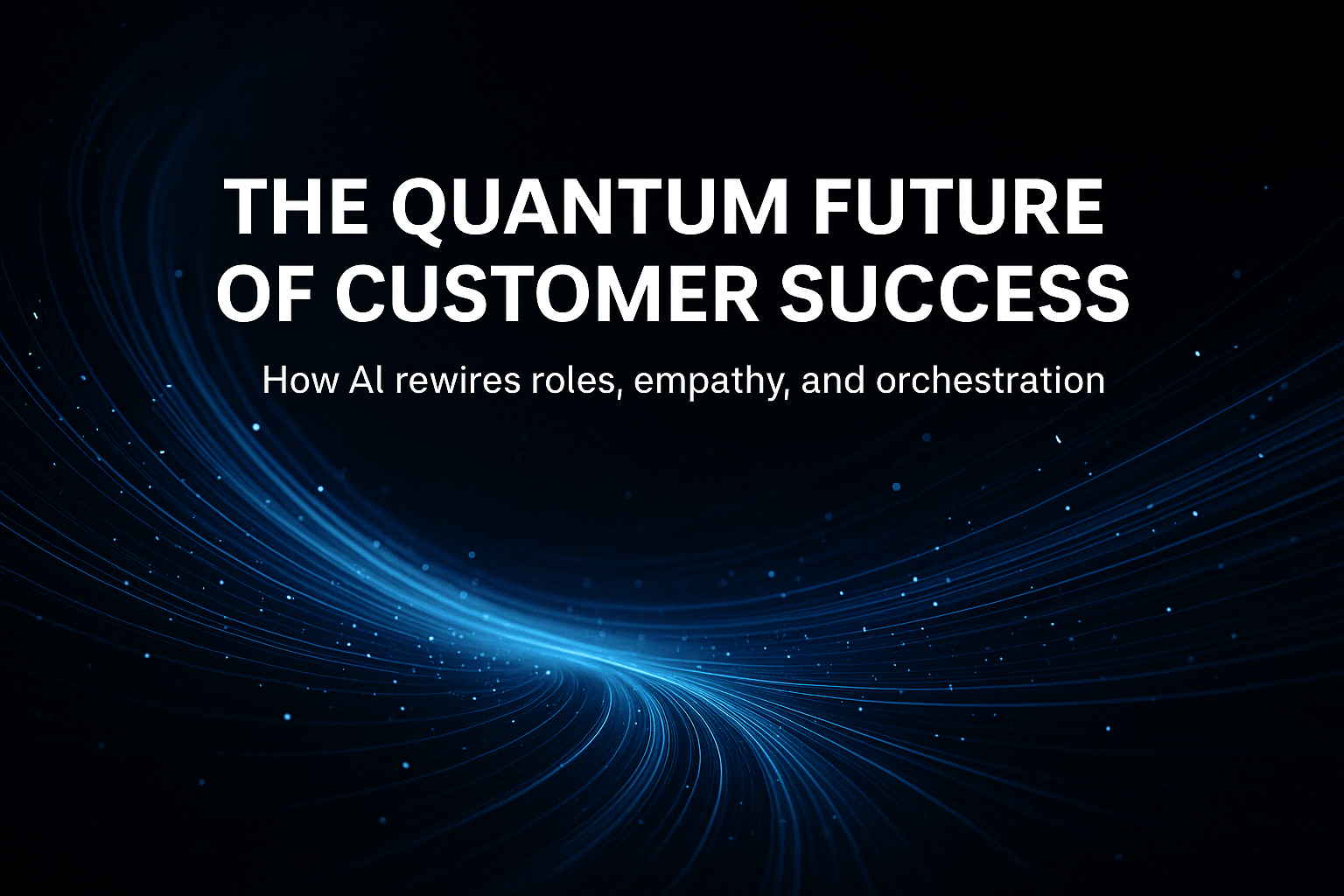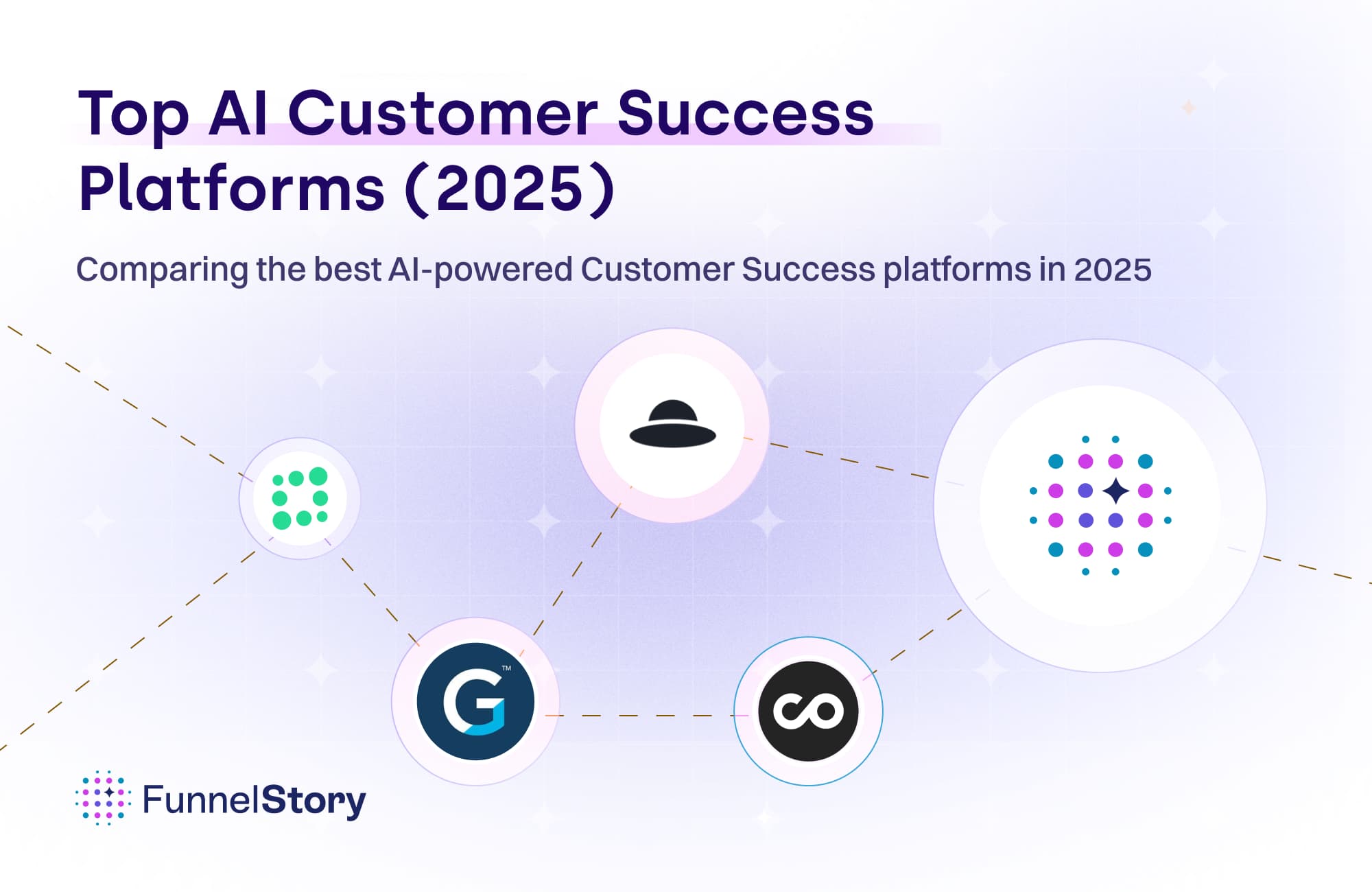In this article
The Best Pocus Alternative: FunnelStory
Deciding which PLS tool to purchase? This article helps compare Pocus and FunnelStory, so you can make the best choice for your organization.

By Alok Shukla
Cofounder and CEO
Sep 19, 2023
7 min read
Product-led sales (PLS) strategies should present your go-to-market (GTM) teams with deal insights that unlock critical next steps and actions. Should they follow up with account X? prioritize account Y? Nurture account Z a bit more?
But how do GTM teams get the confidence to proceed with these activities (with minimal effort)? This is where a PLS tech stack steps in to make matters easy.
A PLS tech stack unifies product and conversational data to help GTM teams get the insights and automation they need to convert self-serve users into long-paying customers. A PLS tech stack is crucial for PLG native companies or sales-led companies who want to tap into the data created during self-serve trials to close critical accounts.
In short, PLS tooling helps bridge the gap between multiple stakeholders in your GTM org like sales, product, marketing, and customer success with one intention: help their self-serve offering get more traction and accelerate growth.
Pocus: An Overview
Pocus is a PLS tool built for GTM teams. It helps them analyze, visualize, and act on prospect and customer data. The solution specifically helps sales and customer success teams focus on important opportunities by providing insights into product usage to make better decisions.
Here’s a brief overview of what it offers:
Product usage insights: Provides a quick snapshot of accounts and users.
Centralized inbox: A single view of high-priority opportunities without being spread across multiple tools.
Scores and signals: Differentiate between high and medium-priority accounts and users.
Insights: Deeper insights about why a prospect is sales or customer success-ready.
Outreach sequence: Automatically adds high-priority users from a playbook to an Outreach sequence.
Playbooks: Create a playbook for the PLS motion by segmenting different users and setting unique sequences for each.
What Makes Pocus a Good Option for Companies?
From providing high product visibility to offering multi-tool integration, let’s look at why Pocus is a good option.
Makes Product Data More Visible for Sales Teams
Pocus provides a detailed inbox that serves as an “insight” and “to-do” goldmine for sales reps. They can quickly glance at opportunities, prioritize them based on their funnel stage, get product use insights, or dig deeper through the Insights Panel.
Offers a Low-Code Interface
Pocus easily connects to Outreach which allows teams to contact accounts that are a part of the “Magic Playbooks” through pre-defined sequences. Moreover, GTM stakeholders can explore data without heavy reliance on other teams. It also offers the option to filter views according to product usage data from analytics tools or ICP data from the CRM like HubSpot or Salesforce.
Integrates With Multiple Tools
Pocus integrates and pushes data to tools that sales, customer success, growth, and ops teams use. This includes Zendesk, Salesforce, HubSpot, Intercom, and more. This prevents teams from juggling between different tools.
Why Pocus Doesn’t Cut It
While Pocus has been offering PLS services for over two years, it still leaves sales teams wanting more. Let’s see how.
User vs. Account Focus
Pocus does two things we disagree with. First, it orients its users around users. When you start with this view, you're focused on the individual interactions - this is a limitation in our opinion. Why? Simple, users are part of an account, and it's the account that is actually buying your product - not just the user. Second, their interface looks like email, which orients you around tasks. While this might make a sales rep feel productive and busy, it doesn’t always ladder up to the strategic layer of work that is needed to close an account. The reality is, your Decision Maker isn’t always one email away from converting.
Incomplete Customer Picture
Product usage data is only half the story to understanding why a user behaves the way they do during the trial period. Pocus does not aggregate conversations and communication from channels like Slack, Zendesk, or Intercom; rather, sales teams only get access to product data. Without this additional data, sales teams can still get caught off guard and miss out on what the customer is actually saying about the trial.
CDP or Reverse ETL Tooling is Mandatory
Pocus leverages CDPs or Reverse ETL to get product data into their application. Why does this matter? Well, it matters for two reasons. First, this means that you’re going to spend more time connecting to and configuring your product data in Pocus. Second, CDPs and Reverse ETL tools are nothing more than logistics companies for data. And surprise surprise, they charge you to move this data around. The more data you move, the more it’s going to cost you.
FunnelStory: An Overview
FunnelStory provides a comprehensive picture of the account and user funnel - through product and conversational data - and helps GTM teams understand if accounts are progressing or getting stuck in their trial funnel. As a result, sales teams can prioritize top opportunities and optimize customer journeys more efficiently.
This is what you get with FunnelStory:
Funnel Visibility: Complete visibility into your overall funnel stages and an ability to drill down into account-level specifics.
AI-Powered Insights: Get insights into account conversational sentiment and health indicators so you have the complete picture.
Quick Course Correction: Easily spot at-risk or conversion-ready accounts. FunnelStory’s built-in revenue signals help teams prioritize opportunities quickly.
Automatic Workflows: Configure updates to be sent based on specific customer milestones and nudges to help customers who are stuck. Additionally, get weekly auto-updates on funnel activity.
How is it different from Pocus?
What Pocus offers may seem great on paper, but once you start exploring deeply, you will find yourself missing some critical capabilities - especially if you're a sales team that's becoming more product-led.
Account Based Insights
FunnelStory orients you around the actual buyer of your product or service - the account. We default to showing you how accounts are progressing through your trial and provide signals based on how likely conversion is. Don’t get us wrong, users matter too, and you have the ability to drill into user activity and data. You can also target users in your nurturing activities and ad campaigns. But user data can be more noise than signal, so we help you manage the account.
Conversation Data
The best way to make revenue more predictable is to leverage product AND conversational data. To do this, a PLS solution must aggregate data from these two channels to make it highly accessible for sales teams. FunnelStory connects with essential communication tools that sales teams use such as Slack, Zendesk, and Intercom to provide a complete picture of conversation data. This way you can identify hidden buyers, and capture what customers are actually saying about your product experience.
Independent of CDP and Reverse ETL Methods
CDPs take lots of time to set up. Teams need to plan out their tasks, test, and schedule a production release. This process can take weeks or even months. Reverse ETL is faster to implement in comparison, but both methods fall short since they only capture product data. FunnelStory doesn’t require these tools to move data, saving you valuable configuring time and more importantly money!
Transparent Pricing
Here’s an open challenge: try finding what Pocus costs; you can’t, because you need to talk to their sales team to learn which plan might suit you best and what it’ll cost. FunnelStory is highly transparent about its pricing. They offer three plans that start from $375 per month and go up to $1,099. Plus, it uses a credit system, meaning you only pay for the active accounts in your funnel.

Why You Need a Modern PLS Tech Stack
Not all PLS tools are created equal since most fail to realize that there is a clear difference between what product teams require and what sales teams require. While product teams want to learn how users actually use the product to focus on the long term, sales teams need to focus on deal progress, powered by product and conversational data.
Sales teams shouldn't settle for a glorified product analytics platform. FunnelStory is designed purely for sales teams, helping them optimize their trial and adoption funnels. With this data, sales teams can seamlessly prioritize high-revenue opportunities and forecast revenue better.
Want to know what the best Pocus alternative looks like? Get in touch today!



